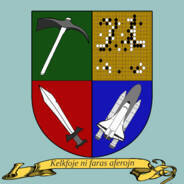New Epyc based server build. But what OS?
-
Featured Topics
-
Topics
-
0
-
AngelaHornung ·
Posted in General Discussion0 -
StrxmyDev ·
Posted in General Discussion1 -
0
-
BaidDSB ·
Posted in General Discussion2 -
AngelaHornung ·
Posted in Linux, macOS and Everything Not-Windows1 -
KeradSnake ·
Posted in Tech News2 -
YoungBlade ·
Posted in Storage Devices4 -
0
-
6
-



















Create an account or sign in to comment
You need to be a member in order to leave a comment
Create an account
Sign up for a new account in our community. It's easy!
Register a new accountSign in
Already have an account? Sign in here.
Sign In Now